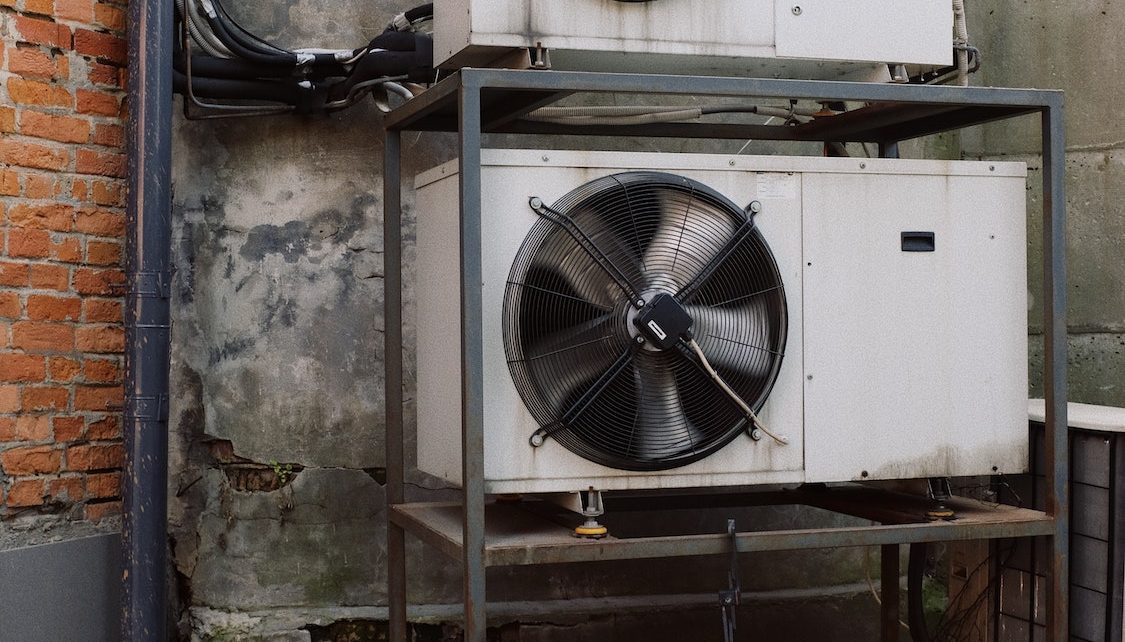Heat pumps are undoubtedly great investments; however, selecting one to install in your home requires more consideration than simply picking off of a shelf model.
Reputable contractors can assist in selecting the appropriate system for your home and should also be knowledgeable of local- and state-level rebate programs that can significantly reduce the cost of an energy upgrade project.
Increased Energy Efficiency
Energy efficiency is one of the main attractions of heat pumps for homeowners. Heat pumps operate by moving heat between locations rather than producing it directly themselves, which requires significantly less electricity and helps lower utility bills while also cutting greenhouse gas emissions and improving comfort and air quality in your home.
Heat pumps aren’t the only answer for reducing carbon footprints, but they play a critical role in cutting back on fossil fuel use in buildings. Combustion of fossil fuels for heating space and water accounts for 53% of carbon emissions in New York’s buildings sector; each home that converts to heat pumps helps decrease this harmful emission by one percentage point.
Heat pumps operate using noncarbon sources of electricity rather than fossil fuels, magnifying their environmental benefits even further. According to a UC Davis study, switching from natural gas furnaces to air-source heat pumps would cut emissions by an estimated 75% in the Northeast; its impact will only grow greater with an accelerated transition away from fossil fuel sources in electricity grid.
To maximize the benefits of your heat pump, however, it’s essential that it fits seamlessly into your home and is properly sized for it. Failure to do this may waste energy and cause increased utility bills; additionally, most state energy programs have performance standards which must be met in order for homeowners to qualify for rebates.
An effective heat pump installation requires hiring an experienced contractor with knowledge of heat movement, local geology (particularly ground source heat pumps) and your heating/cooling requirements. Their experts will not only size your system to suit local climate needs but will also recommend additional insulation measures that could enhance efficiency further.
Qualified contractors will also have the experience needed to navigate through the paperwork involved with applying for rebates – something which can often become just as prohibitive when considering energy upgrades as upfront costs themselves. Mike Ritter chose Boston Standard specifically because they handled all his rebate paperwork as part of their proposal, making taking advantage of these valuable incentives much simpler.
Lower Utility Bills

Heat pumps can save you thousands per year on heating and cooling costs, depending on where you live. That’s because they do not use fossil fuels such as propane, oil, or electric resistance heating systems do – instead they extract ambient heat from either the air (when heating mode) or ground (when cooling mode). They do this using metal coils with refrigerant for efficient extraction that requires two-and-a-half to three times less electricity to create.
Since heat pumps provide both heating and cooling functions in one system, savings from their installation year-round are significant. Your exact savings depend on both the type of heat pump you select as well as its sizing for your home – most state rebate programs only provide incentives to those whose systems meet performance standards, with too small of an installed unit not having an impactful enough effect to cut energy use or too large an installed one drawing additional electricity costs than necessary.
As an added perk, heat pumps produce very few carbon emissions when in operation, although their environmental footprint will depend on how their electricity is produced. If you want to minimize environmental impact while increasing efficiency with your heat pump use, consider switching from grid power to renewable sources like wind power for powering it instead. With that in mind, it could also be a great idea to consult energy audit companies and make sure that you are being energy efficient at home.
Heat pumps do not produce smoke, ashes or moisture when operating, making them an excellent choice for homes with children or pets. Furthermore, these appliances can safely remain on when you’re not around or asleep – ideal if leaving on overnight!
Heat pumps can also be an ideal choice for homes and buildings without traditional ductwork, with various adaptable options to make them work in these spaces. Furthermore, these systems tend to be quieter than other heating and cooling options so as to not disrupt sleep or work activities in the room where you have one installed.
If you’re considering installing a heat pump in your home, speak with the contractor about which option would best meet the needs of your household and climate conditions in your area. They may offer recommendations based on past experience working with other clients and climate conditions.
Reduced Carbon Footprint
Heat pumps use electricity instead of fossil fuels for heating, which results in lower greenhouse gas emissions and is something many homeowners are striving to implement into their home environment.
Heat pumps will lower your carbon footprint almost immediately upon purchase, as well as over its entire life span. Gas furnaces produce approximately one pound of carbon dioxide gas for every 10 cubic feet of gas burned; switching to a heat pump reduces this emission significantly. Electric heaters may still generate emissions; however, those emissions have decreased with an increasingly green grid.
Homeowners can reduce energy usage and carbon emissions further by upgrading insulation, sealing air leaks and making sure their heat pump meets their home’s specific requirements. By taking these steps, they will maximize savings while using an environmentally friendly system.
Heat pumps have become more prevalent because they serve both as cooling and heating systems, eliminating the need for separate air conditioners and furnaces in many climates.
Heat pumps can be especially useful for new construction, and can even upgrade older homes that need upgrading their systems. The cost of installing one may even be comparable with that of an alternative such as gas furnace and central AC unit in terms of overall system costs.
Heat pumps may also make life simpler for households suffering from allergies and respiratory conditions as they don’t produce smoke or moisture, reducing the need to venture outside in cold and rain to collect wood or fuel for heating needs.
As with any technology, heat pumps present some valid concerns when adopted widely in residential buildings. If the electric grid is unprepared to accommodate higher demand from electrified technologies like plug-in vehicles and heat pumps, there could be power outages or increased air pollution from fossil-fuel power plants working overtime during peak hours; however, policymakers could find solutions that mitigate this risk with greater adoption of heat pumps.
Increased Comfort

Installing a heat pump in your home can bring many advantages, with comfort being one of them. These hybrid systems combine heating and cooling into one convenient system for year-round temperature regulation and lower energy bills; heat pumps do this by pulling heat from outside in winter and pushing out hot air during summer.
With new technologies like ENERGY STAR-certified heat pumps that are engineered to be more energy-efficient, homeowners can experience substantial energy savings. This is particularly true in areas with moderate to warm climates. When installing a heat pump in your home, it’s crucial that an experienced contractor be hired so as to properly size and install it – otherwise you run the risk of overspending on energy costs in the long run! Working with experts who know their stuff means saving on energy bills while still getting comfort from having one in your home!
Heat pumps offer two advantages over traditional heating systems: comfort and environmental benefits. Since they don’t rely on fossil fuels to generate heat, greenhouse gas emissions are reduced considerably and there’s no waste produced from operating. Furthermore, their circulation of air throughout your home helps eliminate dust mites, mold spores, or unpleasant odors trapped there, helping you live more comfortably overall.
Heat pumps not only offer savings and comfort benefits; they can also add significant monetary value to your home. A home with modern heat pump technology may appeal to prospective buyers, and many mortgage lenders will lend money against homes equipped with this cutting-edge tech.
If you are considering installing a heat pump in your home, reach out to your nearest Carrier dealer as soon as possible for more information. They can assess your specific requirements and suggest the most appropriate system to meet them based on climate and home size.




